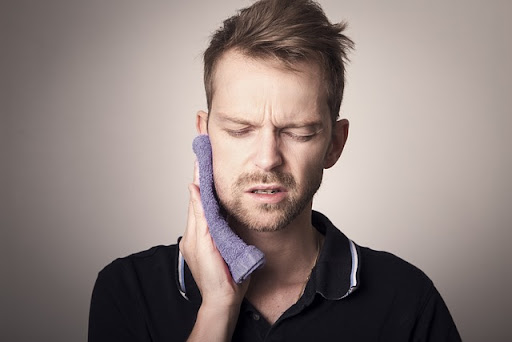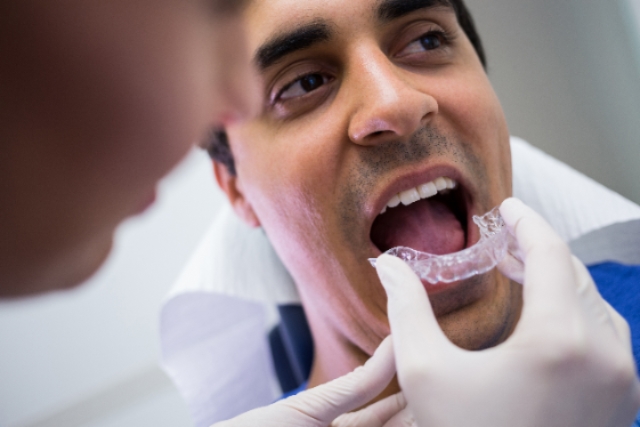If you’ve ever experienced jaw pain, morning headaches, or worn-down teeth, you might be dealing with bruxism – a condition where you grind or clench your teeth. Nightguards can offer relief, but with options ranging from custom-fitted guards to over-the-counter (OTC) solutions, deciding which is best for you can be challenging. Let’s compare custom nightguards to OTC solutions to help you make an informed choice.
Understanding Bruxism
Bruxism can lead to various oral health issues, including tooth sensitivity, broken teeth, and temporomandibular joint (TMJ) disorders. Nightguards are often recommended as a preventative measure to protect your teeth from the damaging effects of grinding.
Custom Nightguards
Custom nightguards are explicitly designed for your mouth. A dentist takes an impression of your teeth and then creates a nightguard tailored to your bite. Here are some benefits of custom nightguards:
- Perfect Fit: Since they are molded to fit your teeth, custom nightguards offer superior comfort and effectiveness. They stay in place better than OTC options, reducing discomfort and ensuring better protection.
- Durability: Made from high-quality materials, custom nightguards tend to last longer. They are built to withstand the forces of grinding and clenching, providing long-term protection.
- Customization: A dentist can customize the thickness and material of your nightguard based on the severity of your bruxism and your specific needs.
Over-the-counter (OTC) Nightguards
OTC nightguards are readily available at pharmacies and are a more affordable option. These are pre-formed or “boil-and-bite” types, where you soften the material in hot water and then bite into it to create an impression of your teeth. Here are some pros and cons of OTC nightguards:
- Affordability: OTC nightguards are less expensive upfront than custom-fitted ones, making them accessible for people on a budget.
- Convenience: You can purchase an OTC nightguard easily without needing a dental appointment, making it a quick solution.
- Fit and Comfort: OTC nightguards often don’t fit as well as custom ones. They might feel bulky or uncomfortable, leading to inconsistent use and reduced effectiveness.
- Durability: The materials used in OTC nightguards are generally less durable than those in custom nightguards, meaning they may need to be replaced more frequently.
Which One Is Best for You?
Choosing between custom nightguards and OTC solutions depends on your needs and circumstances. Custom nightguards invest in your long-term oral health, providing a perfect fit and durable protection. If you experience severe bruxism, TMJ disorders, or have specific dental needs, a custom nightguard is likely the best option.
On the other hand, if you have mild bruxism or are looking for a temporary solution, an OTC nightguard might suffice. However, you must ensure that any nightguard you use fits well and doesn’t cause additional discomfort or dental issues.
Consult with Carolina Family Dentistry
For the best results, consult a dental professional who can evaluate your condition and recommend the most suitable nightguard. Dr. Ron Banik and his team are here to help. With their expertise, you can get a custom nightguard designed to provide optimal protection and comfort.
Schedule an appointment for a consultation with our team today. Don’t let bruxism impact your quality of life – take the first step towards better oral health today!
Refer to this comprehensive guide for additional information on the importance of mouthguards and their various types.
Investing in the right nightguard is investing in your long-term oral health. Whether you choose a custom nightguard or an OTC solution, protecting your teeth from the effects of bruxism is crucial. Contact us today to find out which option is best for you!










